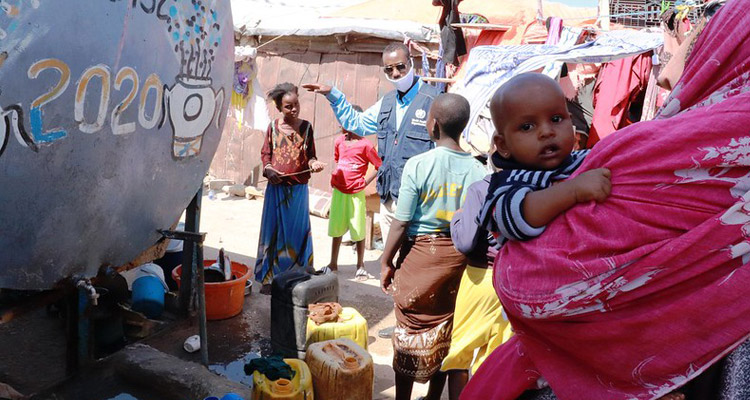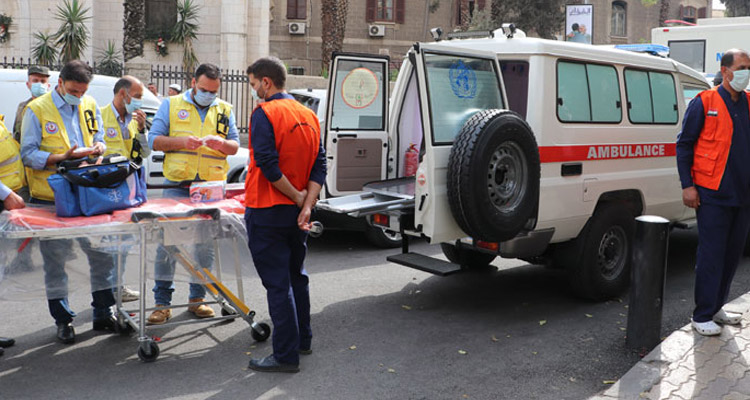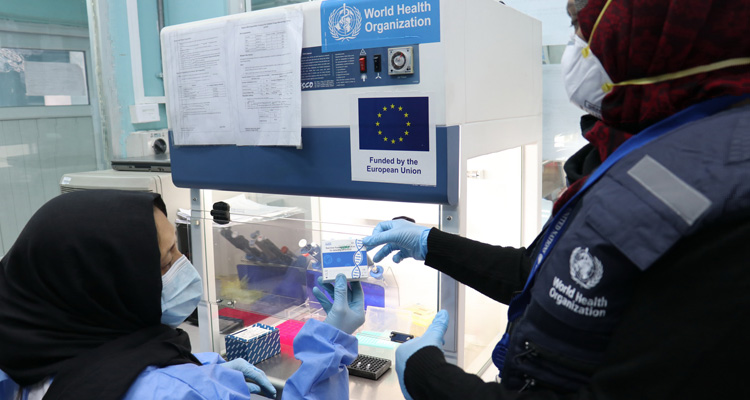Search
[{{{type}}}] {{{reason}}}
{{/data.error.root_cause}}{{texts.summary}} {{#options.result.rssIcon}} RSS {{/options.result.rssIcon}}
{{/texts.summary}} {{#data.hits.hits}}{{{_source.title}}} {{#_source.showPrice}} {{{_source.displayPrice}}} {{/_source.showPrice}}
{{#_source.showLink}} {{/_source.showLink}} {{#_source.showDate}}{{{_source.displayDate}}}
{{/_source.showDate}}{{{_source.description}}}
{{#_source.additionalInfo}}{{#_source.additionalFields}} {{#title}} {{{label}}}: {{{title}}} {{/title}} {{/_source.additionalFields}}
{{/_source.additionalInfo}}Select your language
Health Systems in Emergencies
Challenges

The Eastern Mediterranean Region is experiencing an unparalleled number of humanitarian crises and forced displacements. The problem is worse in those countries experiencing protracted conflicts that are already challenged by weak health systems and difficult operating environments, especially during the COVID-19 pandemic. In this context progress towards achieving universal health coverage and the health-related Sustainable Development Goals is being challenged.
Aim

The Health systems in Emergencies (HSE) is a strategic initiative that aims to explore innovative ways to foster health system resilience, especially in the context of fragile and conflict-affected settings. It aims to achieve its objectives by integrating the work of WHO’s health system development and health emergency programmes.
Achievements

HSE acts as a bridge between health systems and health emergencies programmes and supports countries by promoting health system resilience for health security, building back better for recovery and operationalizing the humanitarian-development-peace nexus (HDPNx) approach. HSE has a focus on fragile and vulnerable settings and the health of refugees and migrants.








